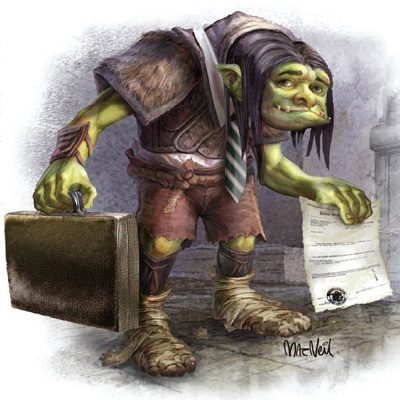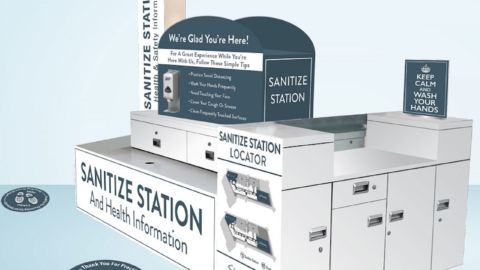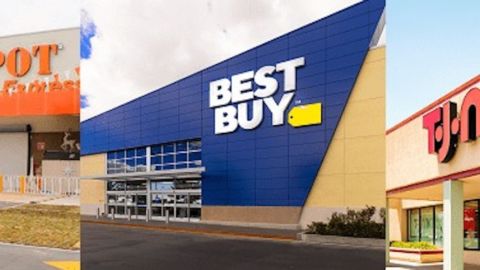Technology’s takeover of the shopping experience has brought many benefits to both retailers and customers — along with one very big drawback. It has drawn the attention of so-called “patent trolls,” more formally known as patent assertion entities (PAEs) or non-practicing entities (NPEs). These are companies that hold broad, often vaguely worded technology patents, with a business model that consists of suing other companies that make any sort of use of the patented technology.
“NPEs began targeting retail companies as an industry group in the mid-2000s and the trend quickly escalated,” said Diane Lettelleir, senior managing counsel at JCPenney in an interview with Retail TouchPoints. “The increased use of technology in retail operations likely drew the attention of NPEs initially, but the fact that retail companies had little experience with patent litigation made them particularly vulnerable.”
In the economy as a whole, the statistics around PAE litigation are alarming:
• Since 2004, patent troll litigation has seen a compounded annual growth rate of 20%;
• 84% of all high-tech patent lawsuits filed annually are filed by patent trolls;
• Fewer than 1% of all defendants in PAE suits are ultimately found to have infringed a valid patent, but defense costs are so high that more than 87% of defendants choose to settle before trial;
• The average cost of defending a PAE lawsuit is $3.2 million;
• More than 10,000 companies have been sued at least once by a PAE; and
• Patent trolls drain $80 billion from the U.S. economy annually.
Comedian John Oliver of HBO’s Last Week Tonight recently did a segment on the impact of patent trolls.
For retailers specifically, patent troll activity is both costly and time-consuming. A single lawsuit can cost up to $2 million and take 18 months to resolve, according to data from the NRF. Many retailers are defending themselves by taking collective action. JCPenney recently joined LOT Network, which helps members protect themselves against patent troll claims. Other high-profile retail members include Amazon, Macy’s, Bed Bath & Beyond, Boots Alliance, Walgreens, and Newegg.
Chilling Effect On Innovation
In addition to these “hard” costs, patent litigation creates a chilling effect that hampers both retailers and technology companies. “Due to the continuing threat of patent litigation, retailers, like JCPenney, are reluctant to consider innovations offered by smaller companies that do not have the financial wherewithal to defend themselves or JCPenney against potential claims,” noted Lettelleir. “Given the important role that small companies play in pushing innovation forward and in the economy as a whole, this deterrent effect is very costly.”
Lettelleir made clear that patent troll activity is only rarely tied to actual retail-oriented innovation. In an interview with Legal NewsLine she said: “JCPenney is rarely sued for patent infringement as a result of the products it sells. Patent trolls typically sue JCPenney as a result of technology used in operating its business — everything from Ethernet-enabled hardware to encryption technology to loading value on to gift cards to store locator functionality on its web site.”
Unfortunately for retailers, their business model makes them tempting targets for patent trolls. “The fact that technology plays a role in selling products to consumers provided NPEs with an appealing and simplistic damage model — a set percentage of all profits, for example,” said Lettelleir. “Additionally, in the majority of cases, the technology targeted was developed by third parties, so retailers were handicapped when trying to defend themselves.
“Patent trolls frequently avoid suing the companies that developed the technology that is the focus of the litigation because those companies are in a better position to defend themselves on the technical merits of the case,” explained Lettelleir. “They are often in a position to devote greater resources to the defense because the accused technology is their core business.”
Strength In Numbers
JCPenney joined the LOT Network in 2016 “as a long-term play to reduce its overall patent litigation risk,” said Lettelleir. “LOT Network is a non-profit community of companies that agree that if one of their patents falls into the hands of a patent troll, all other LOT members have their conditional license to that patent activated, granting them immunity from patent troll litigation. Members can still use their patents for traditional purposes, like suing other companies or even one another.
“Increasingly, other members of the retail community, such as Amazon, Macy’s and Bed Bath & Beyond, as well as major players across industries like Google, Slack, Dropbox and Intuit, are banding together in communities such as these to leverage the cost efficiencies gained by joining forces,” Lettelleir added.
Beyond taking such protective measures, there’s not much companies can do on a day-to-day basis, although JCPenney and other retailers “are continuing to engage in the political process to seek legislative changes,” said Lettelleir. “Retailers are also submitting amicus briefing in pending cases that have the potential of bringing positive changes that may help to level the playing field.”













